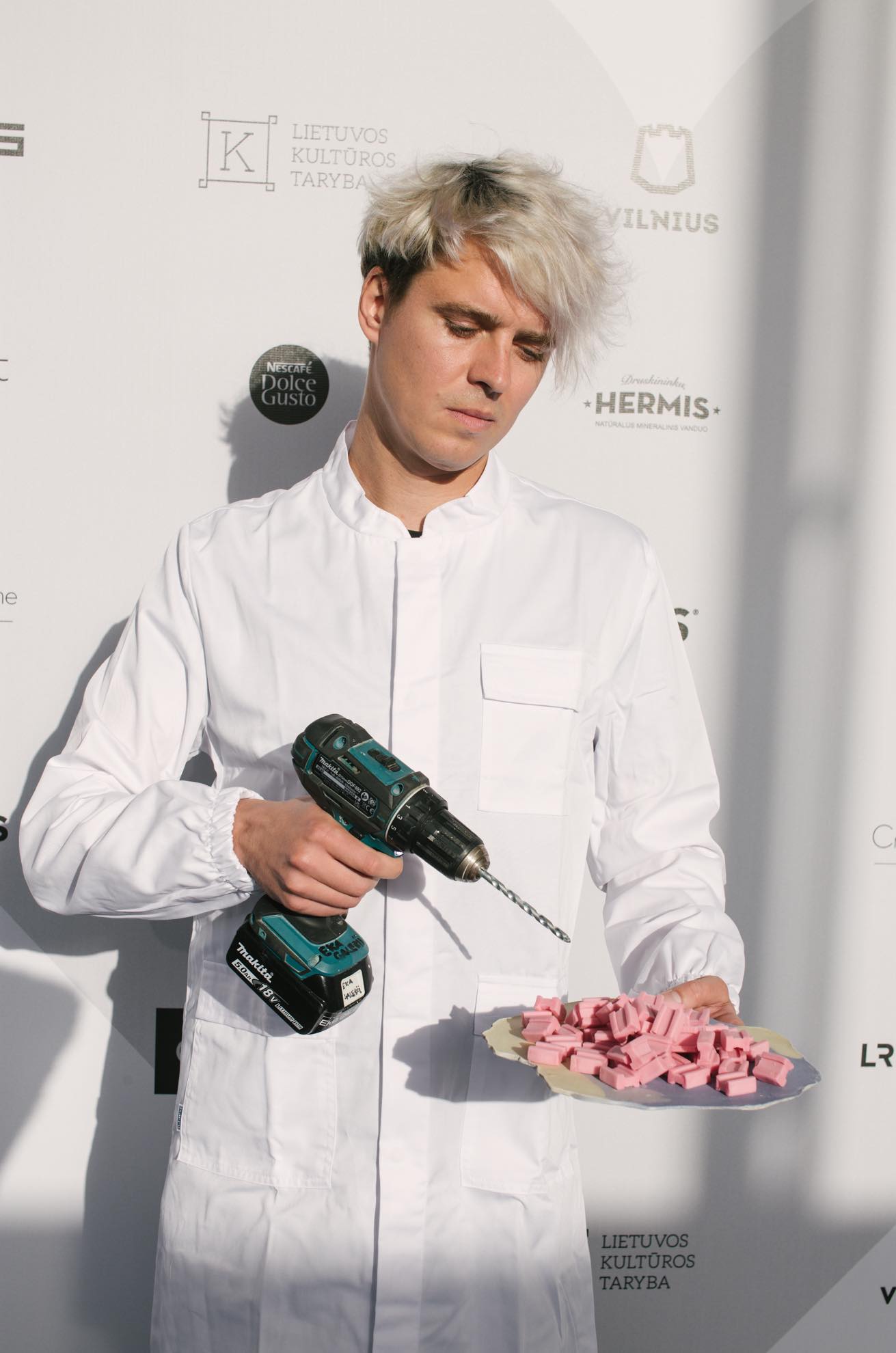Avemaria (Estonia)
The fourth point of the Avemaria charter is that all band members must get along – and hopefully, this will also affect the listeners (at least those standing in the front row). The music they perform is a blend of heartfelt indie and the worst day in the world. Relevant keywords: radio, roadside ditches, toolshed, stained glass windows, wool socks, undergrowth, love, and battery acid.
Riste Sofie Käär – vocals, guitar
Kalli Talonpoika – drums
Alexander Kaseste – bass
Jarko Skolin – guitar
The band can be heard on May 10th at 20:00 at the concert “Writers in Music” at the Tartu Literature House Culture Club Salong.
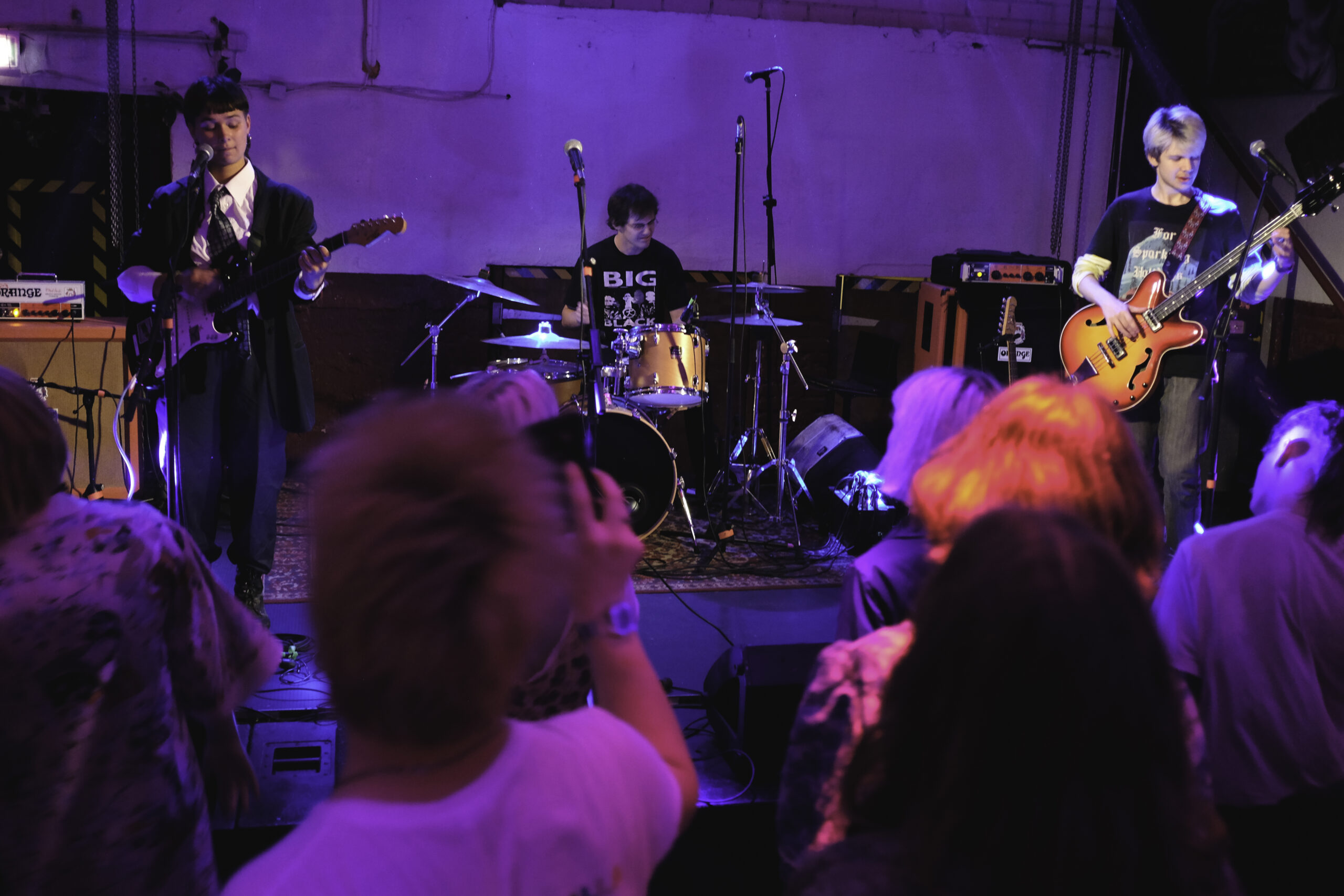
Aapo Ilves (Estonia)
Aapo Ilves can be described as a poet, lyricist, librettist, playwright, and translator. Still, he summarises all his recent activities with the word “songwriter,” as this word should encompass poetry, writing, and music-making.
From the pen of Aapo Ilvesr who writes in Estonian, Võro, and Seto, there have been published poetry collections, prose compilations, and numerous plays, in addition to illustrating over half a dozen works and publishing reviews and articles in the press. Aapo Ilves is an appreciated lyricist who has written lyrics for pop artists and librettos for operas and musicals, and he has also translated a fair amount of song lyrics. The musical and songwriting work of Aapo Ilves has been recorded on albums “Aga ükskord” (“But Once” 2013) and „Kirivane” (“Colourful” 2016).
Aapo has been among the performers at Prima Vista almost every year, and for many years, he has been a staunch supporter of the tradition of the writers’ concert at the festival. Over the years, Aapo has compiled albums “Laulvad kirjanikud” (“Singing Writers” 2007) and “Lutsuvad kivid. Kirjanikud muusikas” (“Lively Stones. Writers in Music” 2013) from the songs performed at the writers’ concert.
Aapo Ilves is one of the relatively few Estonian writers who has not settled in Tallinn or Tartu – he writes and creates music in Räpina instead.
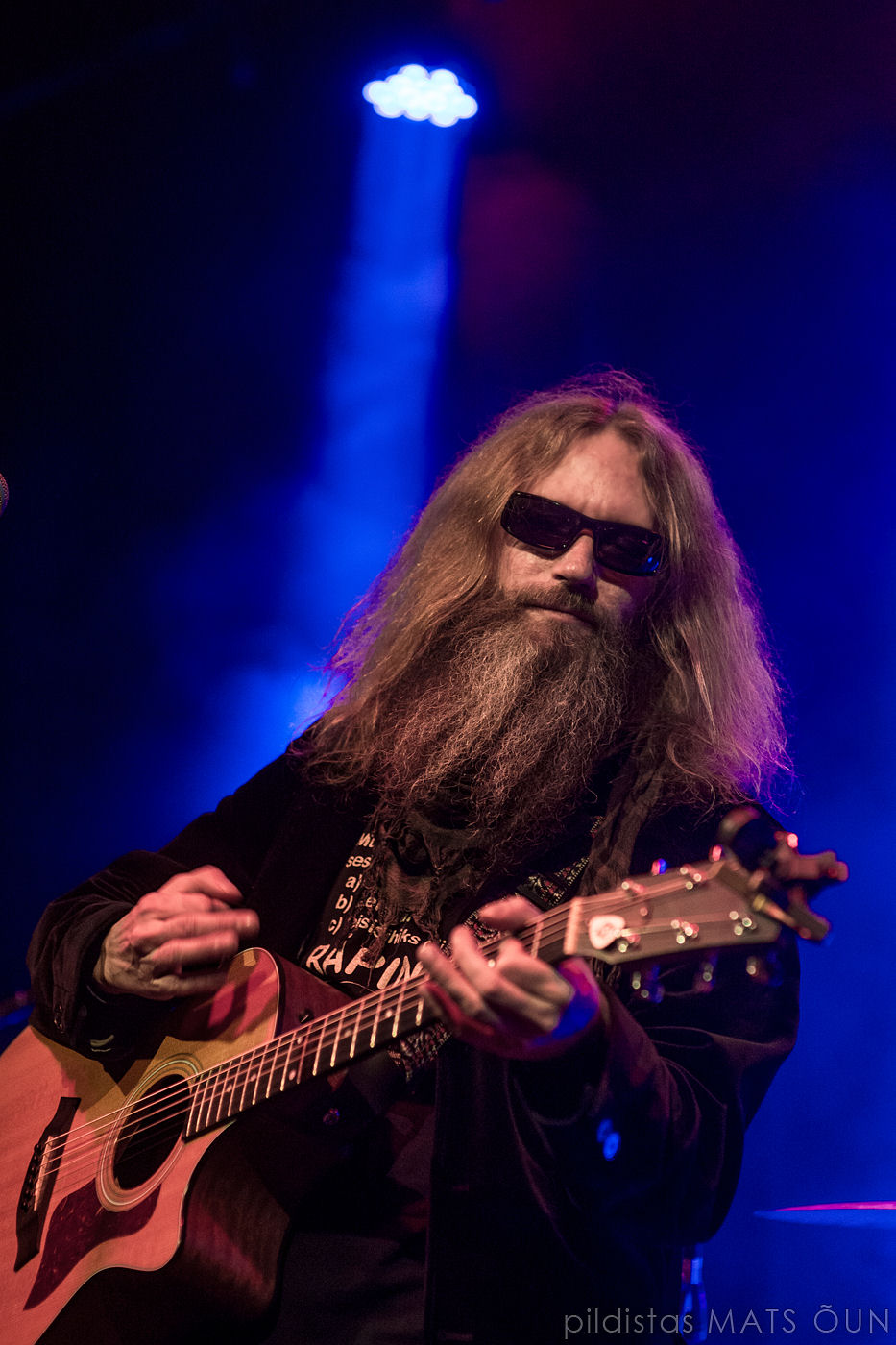
Triinu Meres (Estonia)
Triinu Meres: “The question ‘what am I’ made me think for quite a while. Others are probably not interested in my beautiful soul. I am not interested in my level of education or various minor literary awards. Height and weight are not the topics here, but I am not so well-known either to write ‘has published many different books in various genres.’ Besides, that’s not true. I have published one poetry collection and almost everything else published on paper is speculative. Generally, I am known as a speculative fiction writer, although honestly – I haven’t written any speculative fiction novels, as far as I know. I write books. The genre is determined by those who want to sell the book to a genre-interested reader. In addition, I write an online diary. A blog, if you use a loanword. There I talk about my ADHD, autism, physical peculiarities, family life, demisexuality, and all those things that a decent person probably wouldn’t talk about in their self-introduction.
I am not a decent person. At least that’s clear.”
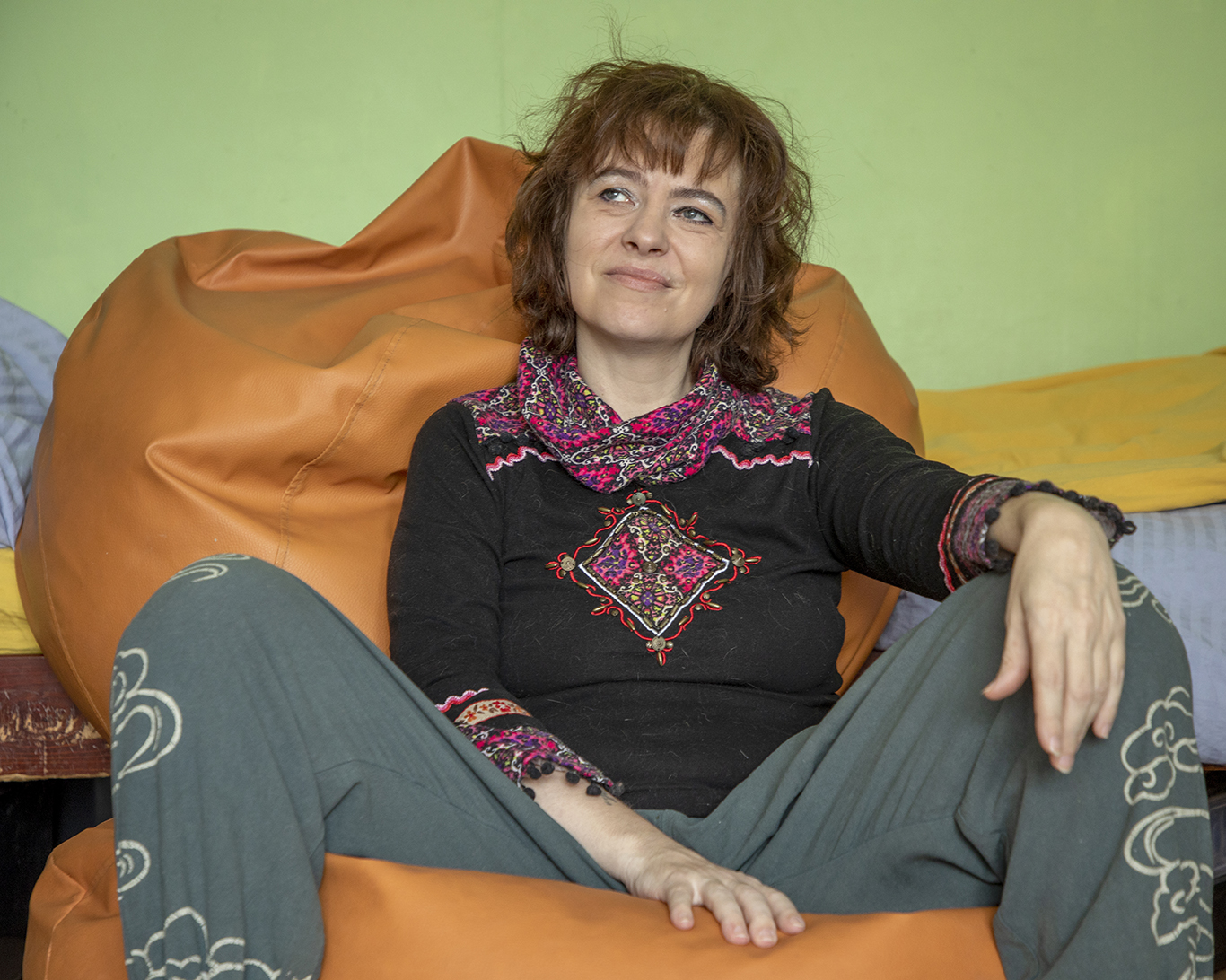
Epp Petrone (Estonia)
Epp Petrone (1974) is best known as a publisher of the autobiographical series “Minu…” and “Meie…”. She has also written in various genres: travelogues (trilogies “Kas süda on ümmargune?” and “Minu Ameerika”), both fiction (“Meestest, lihtsalt”) and journalistic short forms (“Lastekirju” and others). However, Petrone has written the most for children: fairy tale collections (“Võlusõnad” and others), a series based on her own family (“Marta varbad”, “Anna hambad”, etc.), to which recently a new addition has been made in the form of a character named Mamma (“Mamma köök” and others). She has also tried her hand at historical adventure stories for children (“Riks ja neli kuningat”) and memoirs in the form of animal stories (“Hiir püksis”). At this Prima Vista, Petrone presents her fairy tale collection “Kust tulid muinasjutud?” and a science fiction novel “Linnutee koodid”.
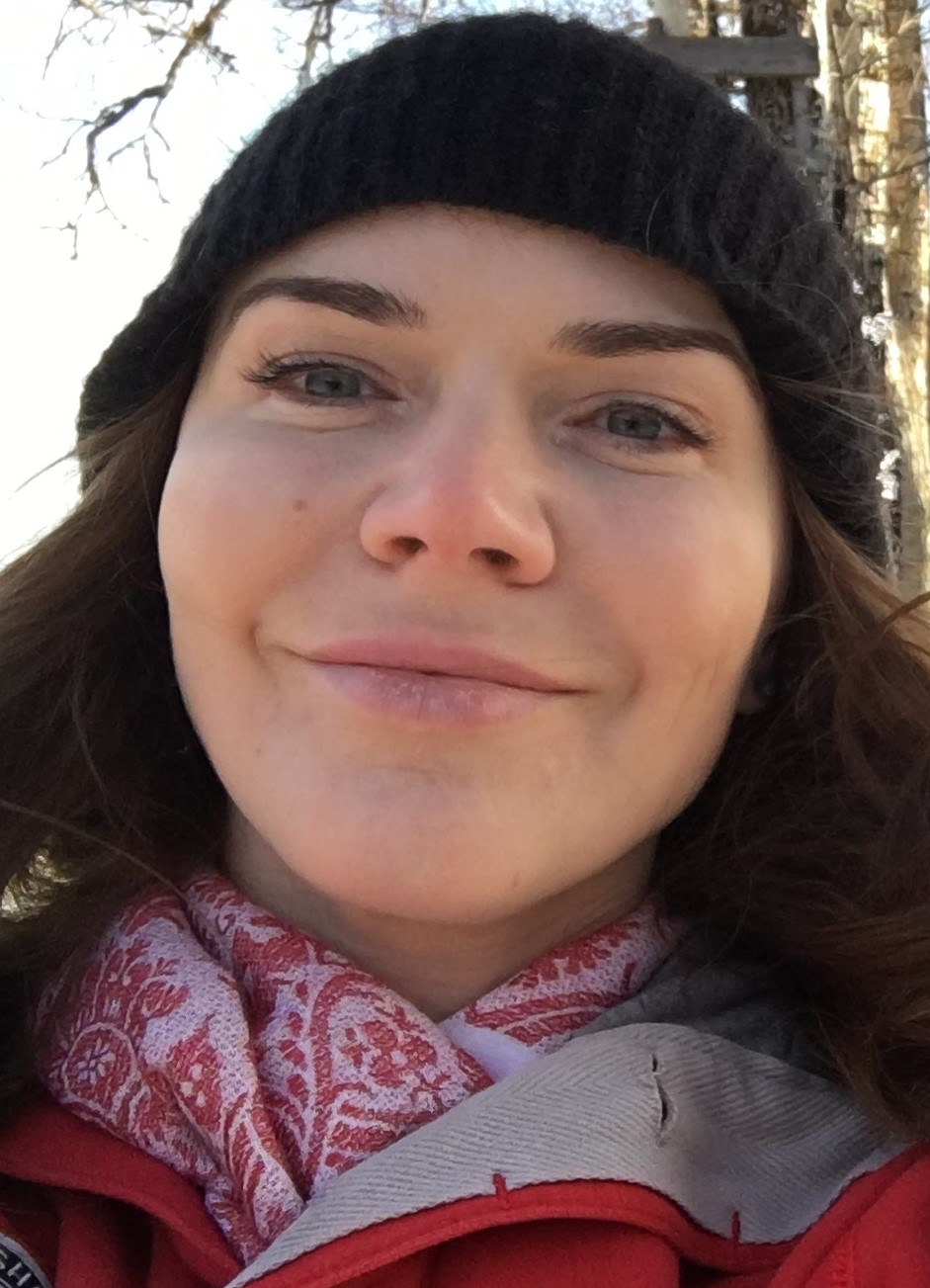
Emma Lotta Lõhmus (Estonia)
Emma Lotta Lõhmus is studying semiotics and cultural theory at the University of Tartu. Her poetry and poetry criticism have been published in Müürileht, Värske Rõhk, and Looming. Emma Lotta enjoys the smell of earth and cold water, Marina Herlop’s album “Pripyat,” baklava, and finding common ground with someone (which doesn’t necessarily have to consist of words). When she was little, she endlessly compiled lists including everything in her room, nursery and classmate names, illnesses, and words with multi-consonant combinations. Now, she is interested in how poetic language could awaken us from such categorisation, offer unexpected word combinations instead of worn-out expressions, and thereby touch people in the most real and intense ways.
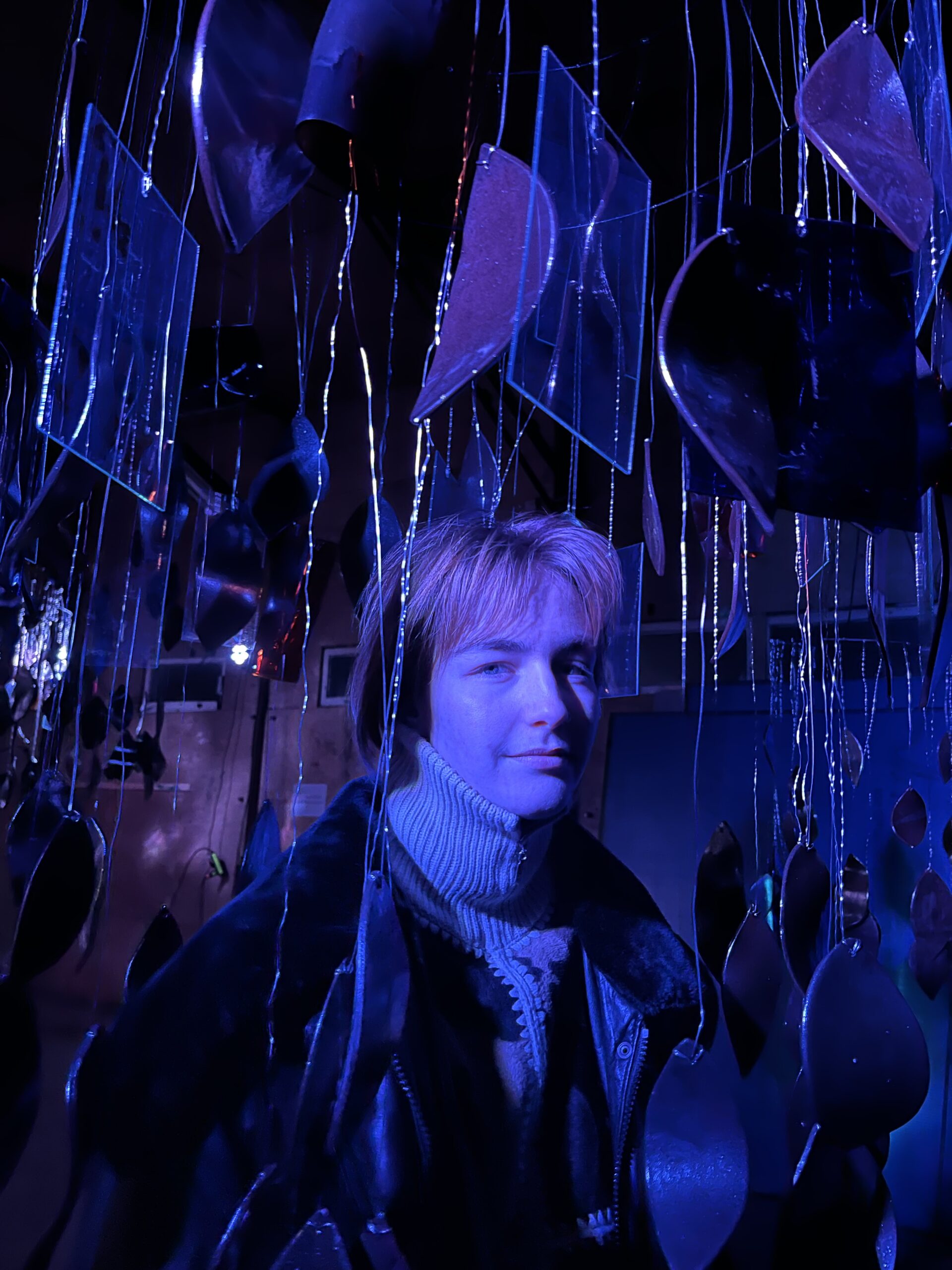
Helena Aadli (Estonia)
Helena Aadli is researching contemporary culture in her master’s studies and edits a publication on contemporary culture (coincidence?). She enjoys small little words and words that tend to repeat themselves, and words that mean nothing, yet she feared the word for so long because it is in black and white and accessible like a document, the likelihood that it remains, that she can return to it, is great. She writes to free herself, and then she can finally rest, as one of her favourite writers said.
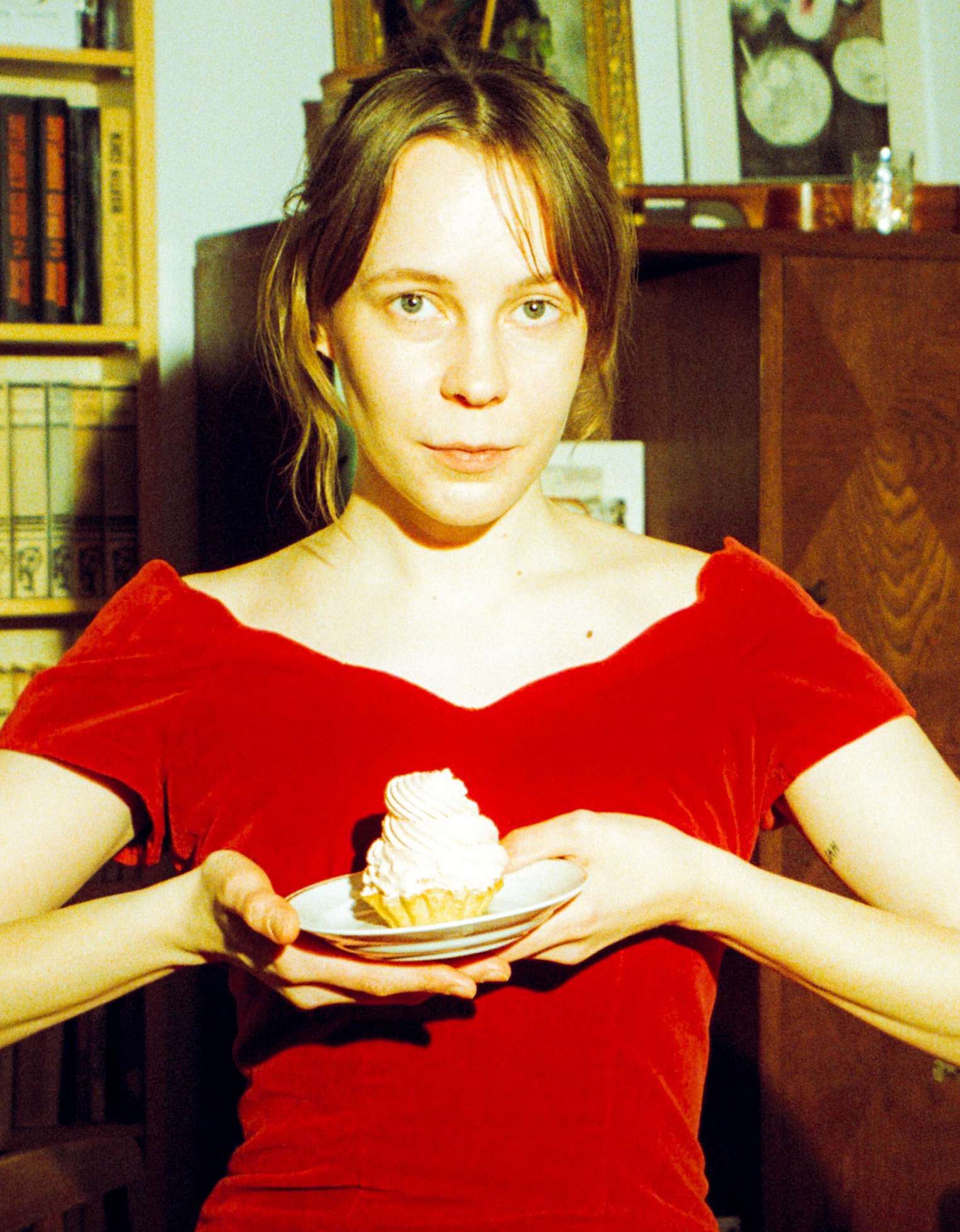
Hildegard Reimann (Estonia)
Hildegard Reimann has found herself in a magical loop where her free time is her work, her work is her creative work, creative work is her studies, and her studies are her free time. Professionally an ethnologist, but always engaged in art as well, primarily through drawing—or rather scribbling—and collage. However, studying ethnology has filled her with stories that are not her own, which she digests, twirls around her fingers, blows warm air onto, and tries to mould into artistic form. Lately, she ponders where and who the author is in this case. Art stemming from stories, people, and relationships is anonymous yet collective, procedural, and therefore touching. She tries to instil collaboration and sharing in her endeavours. The project “How to Write Kindness?” is an example of collaborative creation, where life itself is the author: encounters, interactions, and cooperation. Her collaborators in this were the flowers, berries, penguins, cats, tractors, coffee cups, and people of Pahkla Camphill village.
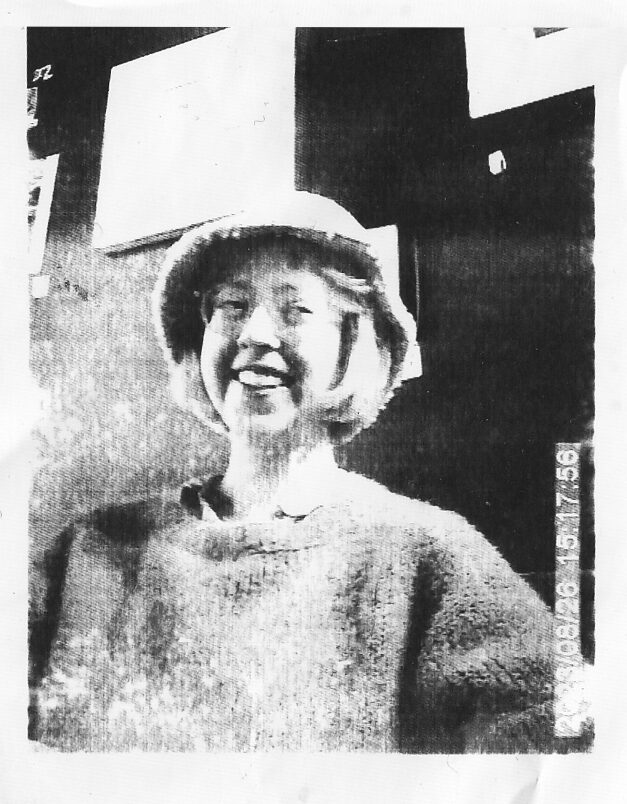
Andreas Kübar (Estonia)
Andreas Kübar graduated from the Estonian Academy of Arts design department and lives, works, and occasionally rests, in Tallinn. Lately, he has been quite involved in writing, and he is pleased to note that with each passing season, more writing opportunities are coming his way. Generally, he regards writing as an opportunity rather than an obligation, as nobody is compelled to write. When writing becomes an obligation, it immediately reflects in the outcome. The best texts for him are always those whose beginnings arise in extremely anti-creative or anti-work environments. Somewhere in a queue at the checkout, on a plane, on a tram, or in any other noisy atmosphere where thoughts arise that a person thinks when they cannot think. Daily, he works as a designer at the clothing brand Ellen Richard and plays drums in the world’s most post-post-rock-folk-punk-indie-metal-___- ensemble ants1. He also dabbles in the field of performing arts, but cannot pinpoint their common denominator.
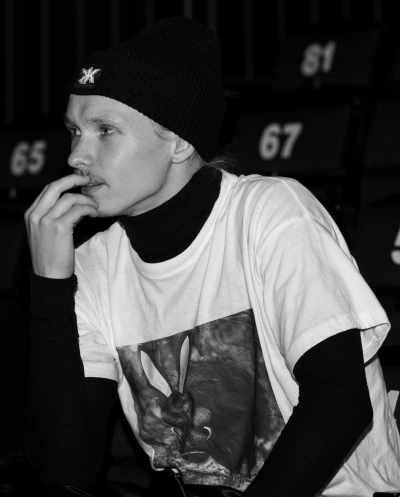
Anastassia Kuznetsova (Estonia)
Anastassia Kuznetsova is an intermittent writer, a great admirer of marshland landscapes, a climber of trees, and undoubtedly many other things. She always sees the small within the large and writes in the same manner: for her, reflecting the big picture in the details and the lives of ordinary people is important. Despite being a high school student who knows she is still learning everything, Kuznetsova won the main prize in the 2022 Fresh Novella competition with her untitled text and is now participating in the project “How to Write Kindness?”
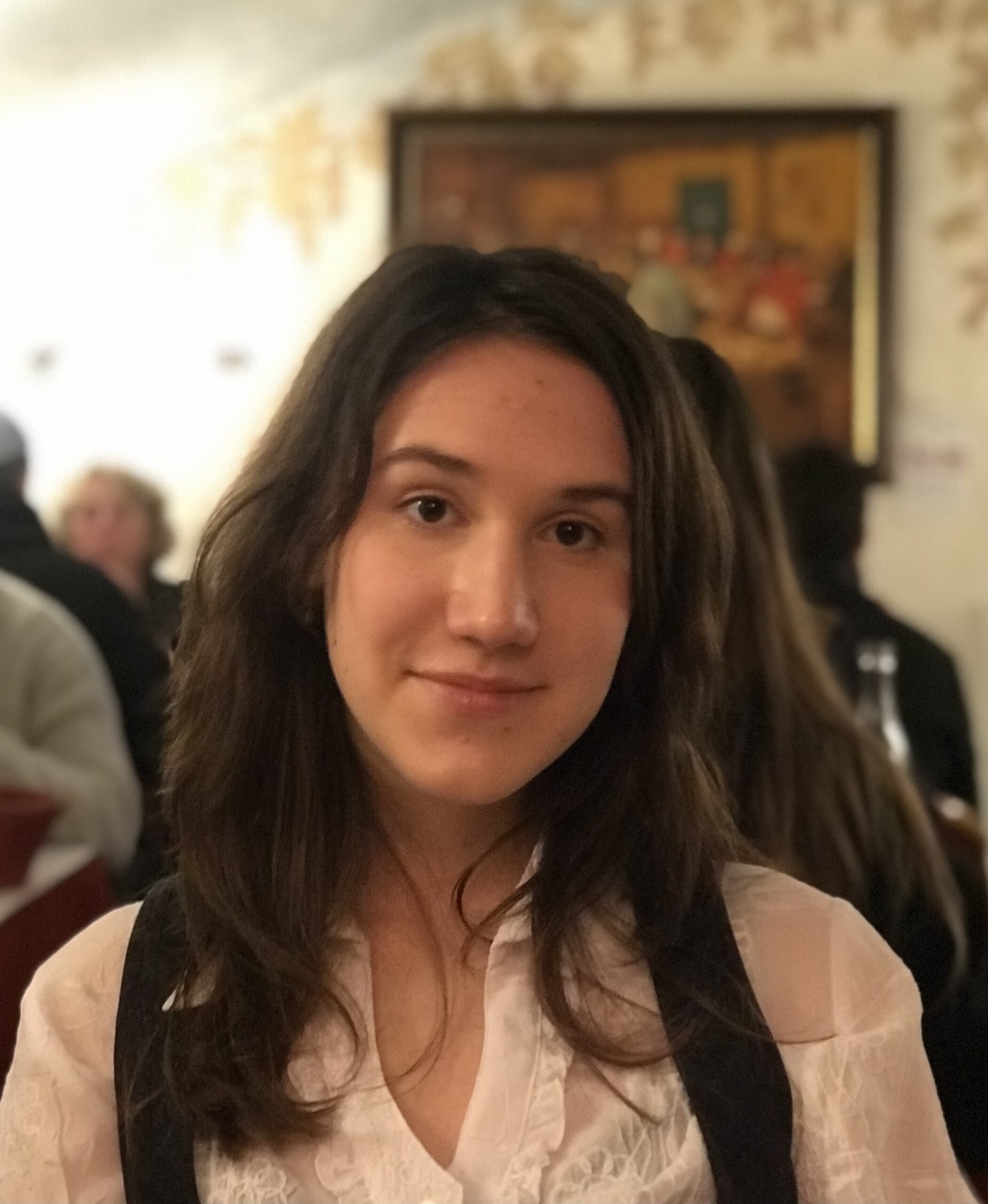
Johanna Rannik (Estonia)
Johanna Rannik‘s more serious relationship with literature began in the second grade when she wrote free-verse lines for a Christmas poetry contest: “These eyes are all around us / yet no one sees them.” At the same time, her first creative crisis occurred because, to fit the theme of the contest, she had to hastily weld a clumsy verse stanza to the end of the poem: “When trees have lost their leaves / those eyes peep out through trees / they wait for Christmas Eve.” As a freelance cultural critic, her main areas of focus are theatre and societal critique, but to her surprise, she increasingly finds herself involved with literature – largely thanks to the trust, support, and ideas of the editorial team at Värske Rõhk. Publishing prose centred on her own emotions and experiences still makes her anxious and feels foreign, but she feels that through such vulnerability, she becomes increasingly authentic in her work. As a community-minded individual, Johanna Rannik is a member of the Estonian Theatre Researchers’ and Critics’ Association and the Student Lodge of Theatre Studies, serves on juries, and teaches consent to school students. She loves compound words and feels comfortable in melancholy.
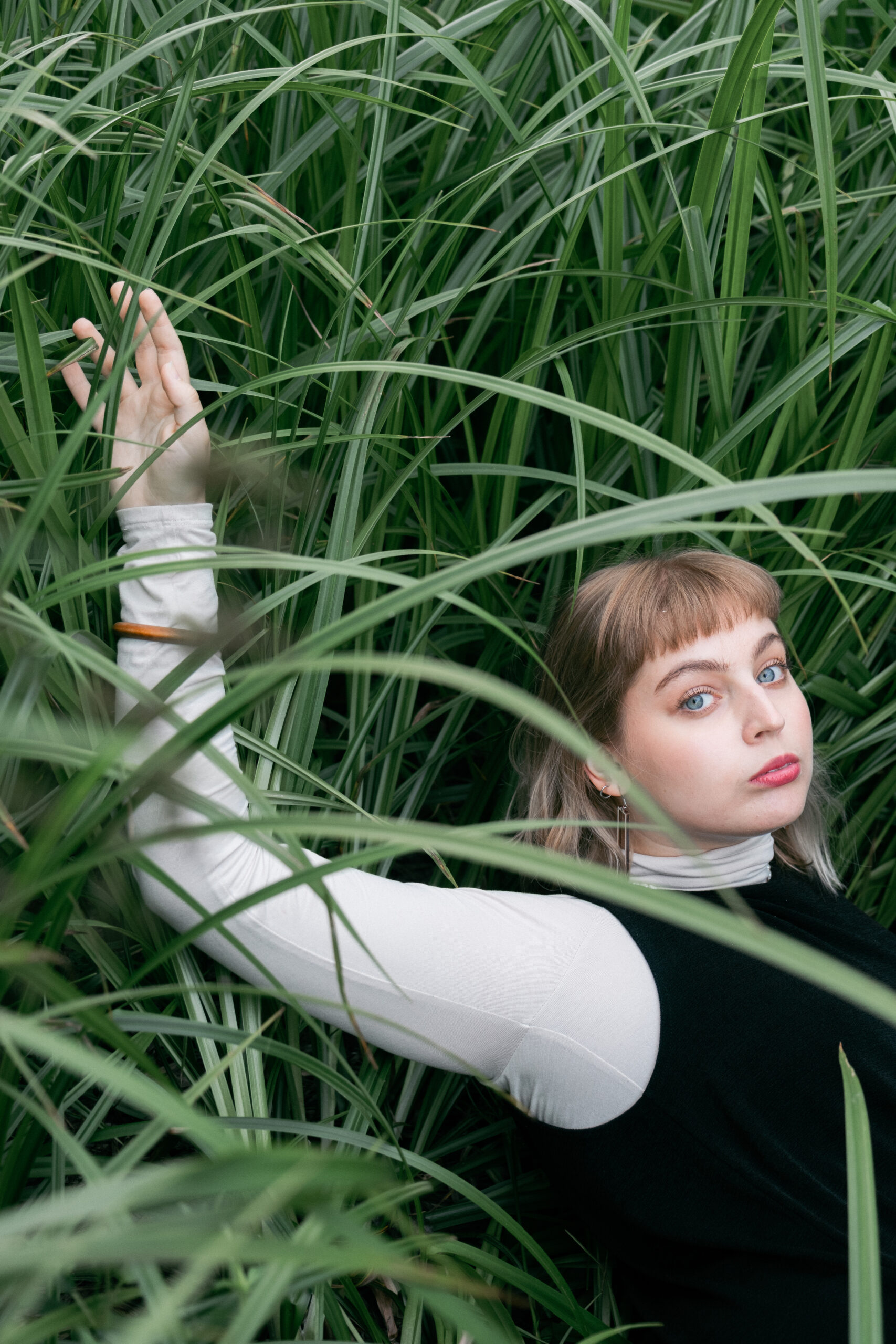
Karin Orgulas (Estonia)
Karin Orgulas is a lawyer living in Tallinn, who wishes to live somewhere else. She grew up in Võrumaa, hence her texts often return there. She thinks a lot about the sense of place, cranes, ways of remembering, getting stuck between the lines, perception, Augusts, and long-gone summers. She enjoys repetitions, strong emotions, free form, and a lack of rules. In her free time from writing, she does everything and nothing – reads books, goes to work, tries to be a better person, goes to the cinema, watches clouds, sleeps poorly, sends postcards, draws, dances herself into nights, buys oranges and forgets to eat them. She also travels by tram.
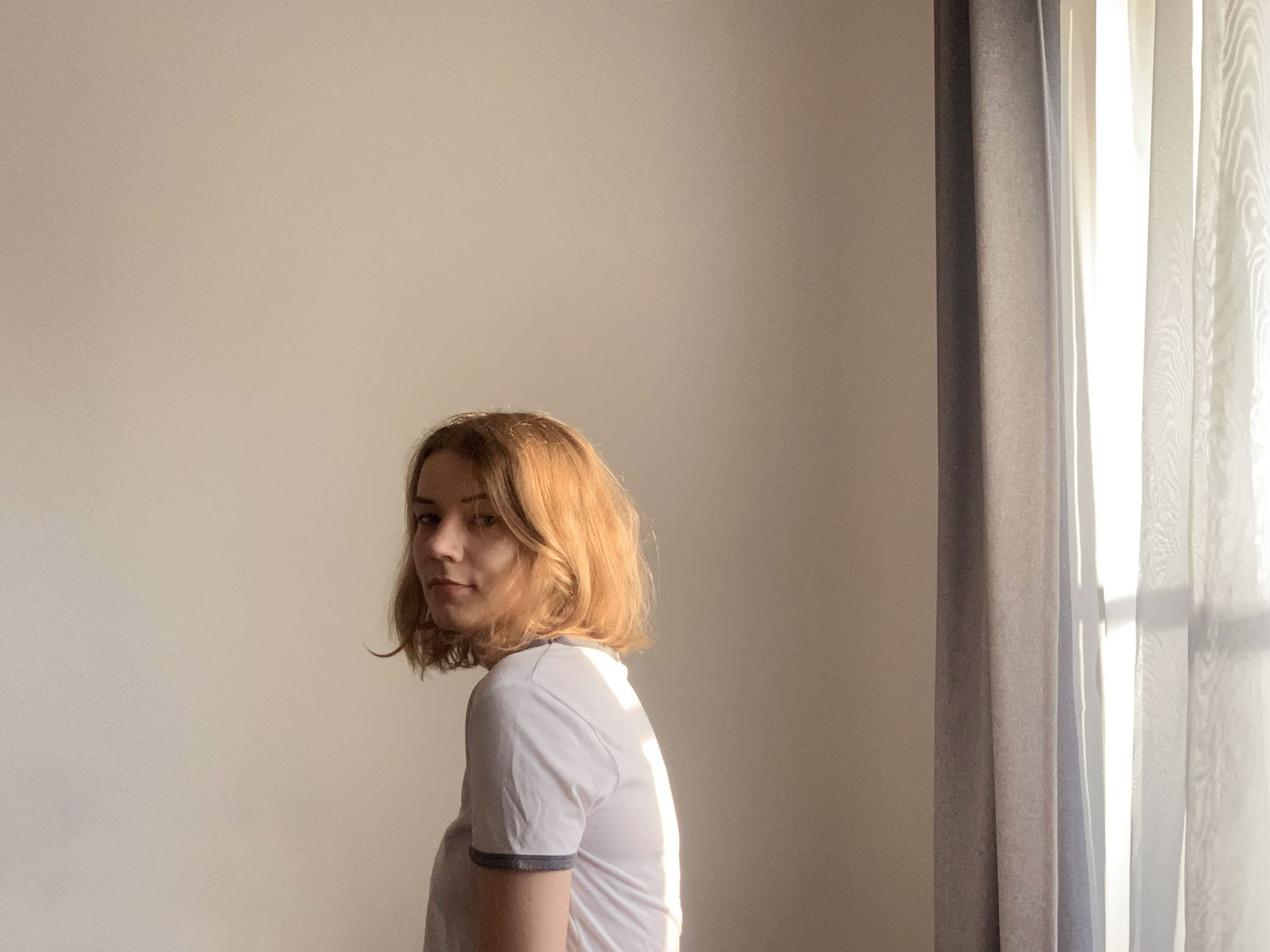
Oliver Issak (Estonia)
Oliver Issak is a production dramaturg and freelance artist who, alongside creative challenges, is studying social design at the Estonian Academy of Arts, all to imbue each artwork with a fragment of potential for making the world a better place. In a creative tandem with fellow artist and designer Jan Teevet, his life’s journey also includes founding the Institute of Encounters and Non-Encounters, where active researchers roam the corridors daily, seeking opportunities to create new encounters (or non-encounters). Their greatest achievement so far has been launching the action under the name of the Embassy of Utopia – a sanctuary of positive uncertainty, bold ideas, and unbridled imagination.
However, the work of forging new encounters is far from over, and undoubtedly, by the time these lines are printed, new horizons are already emerging.
Oliver also wishes to emphasize that it’s precisely the encounters with different people that have brought him to this festival catalogue, directed him towards the wonderful initiative of Värske Rõhk, and connected him with individuals who fight tirelessly for a better tomorrow. One can only hope that encounters have not left Oliver behind, and in the future, there will be more encounters with tens, hundreds, thousands, and millions of remarkable people!
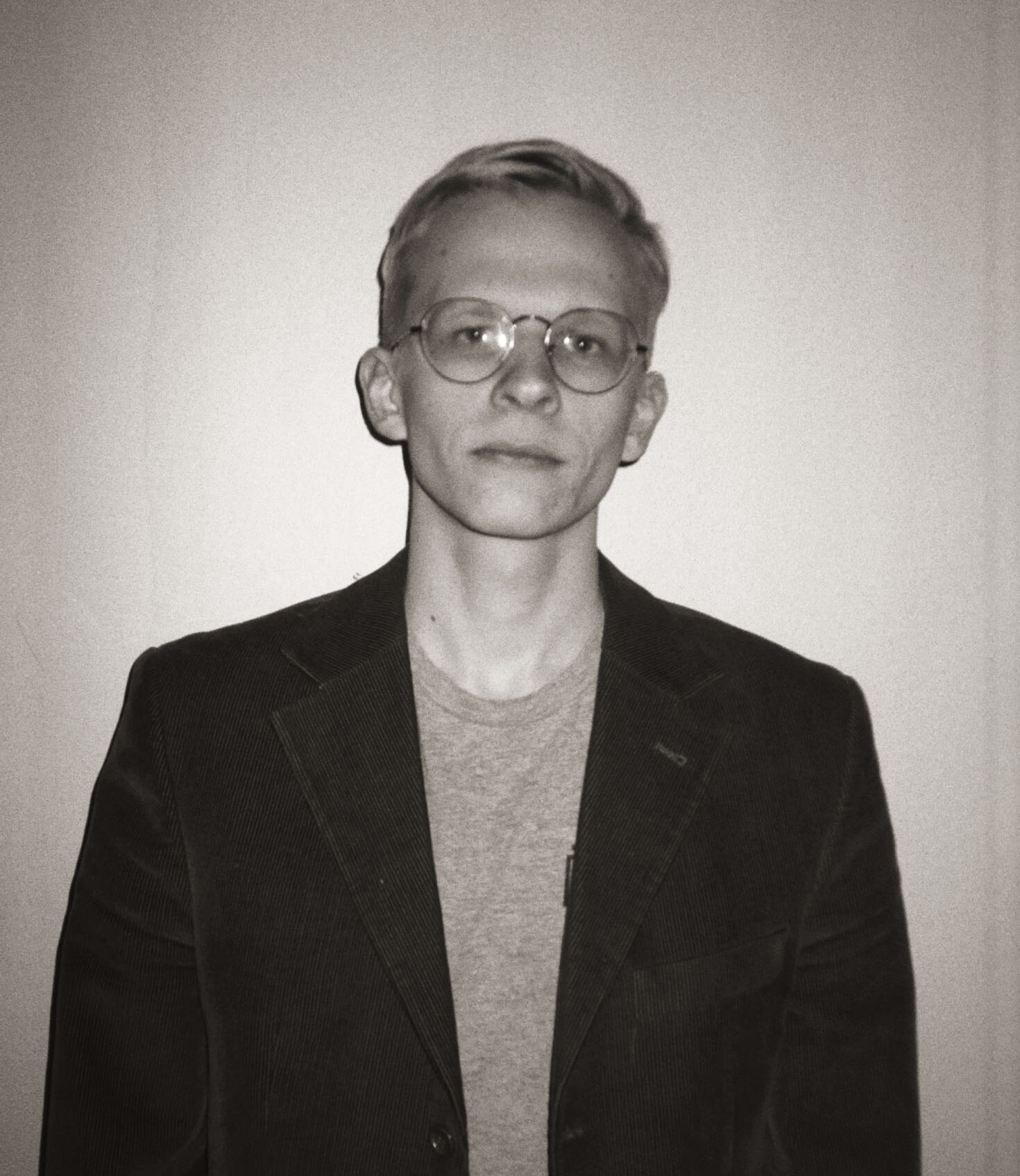
Saara Liis Jõerand (Estonia)
Saara Liis Jõerand is a master’s student in general linguistics at the University of Tartu and the managing editor of the magazine Värske Rõhk. She has also studied semiotics and a bit of mathematics, writes literary criticism, and flirts with the art field. She is fascinated by patterns, models, analogies, solutions, and precision. Or, actually, even more so by how humans strive for them, so desperately and yet so hopelessly. And also, what happens when they fail, when discrepancies, ambiguities, and loose ends arise. Exploring language allows her to engage directly with all of this. Literature, of course, allows her to play with it.
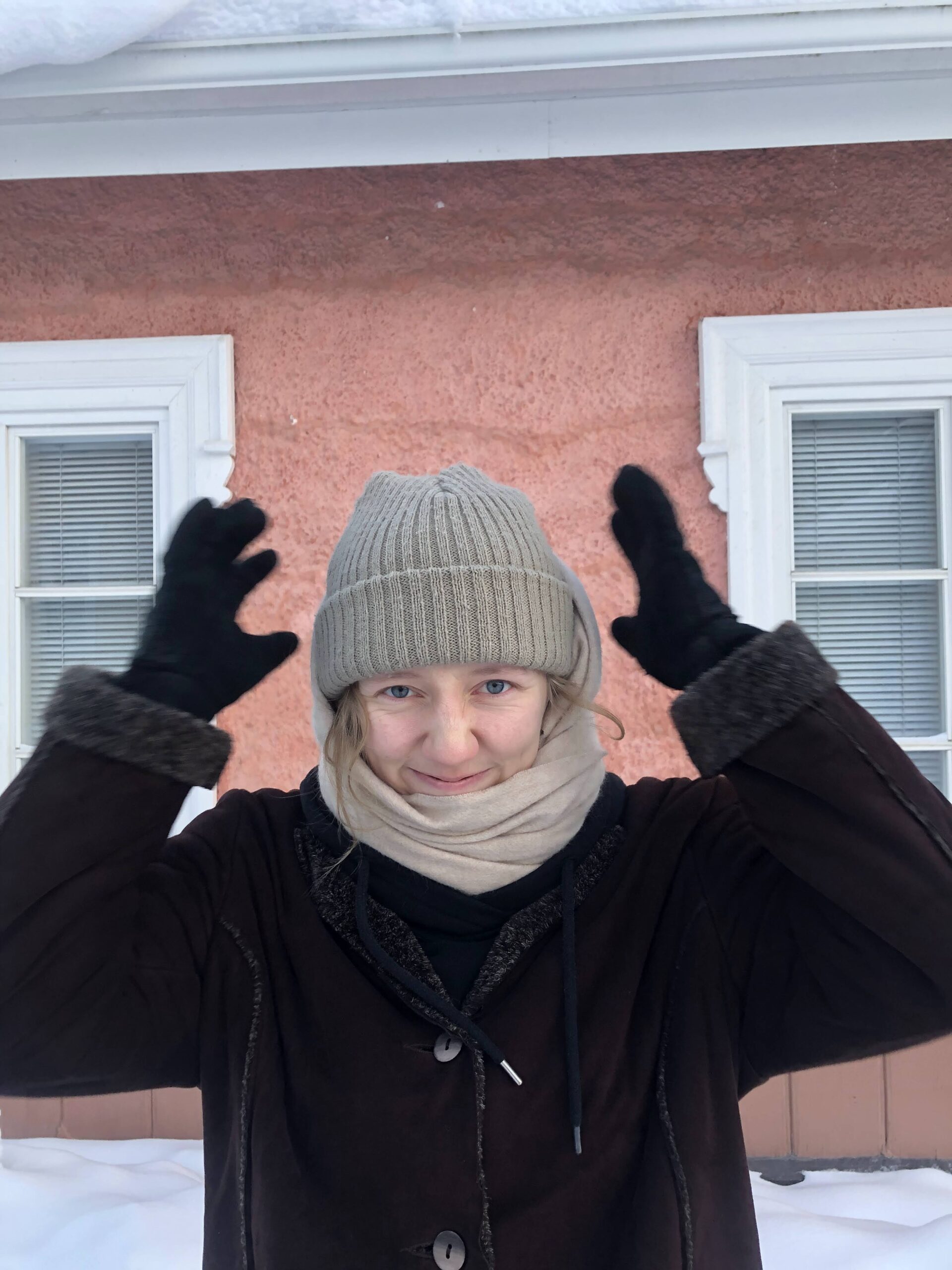
Urmas Vadi (Estonia)
Urmas Vadi (1977) is an award-winning author who writes both drama and prose. Among his works are plays such as „Peeter Volkonski viimane suudlus” (“Peeter Volkonski’s Last Kiss”), „Millest tekivad triibud” (“How Stripes Are Formed”), „Kus sa oled, Juhan Liiv?” (“Where Are You, Juhan Liiv?”), „Furby tagasitulek” (“The Return of Furby”), and prose books including “Neverland,” „Ballettmeister” (“The Ballet Master”), „Tagasi Eestisse” (“Back to Estonia”) and others. Last year, he released the novel „Kuu teine pool” (“The Other Half of the Moon”) and the play „Sada grammi taevasina (“A Hundred Grams of Sky Blue”) was staged at the Vanemuine Theatre.
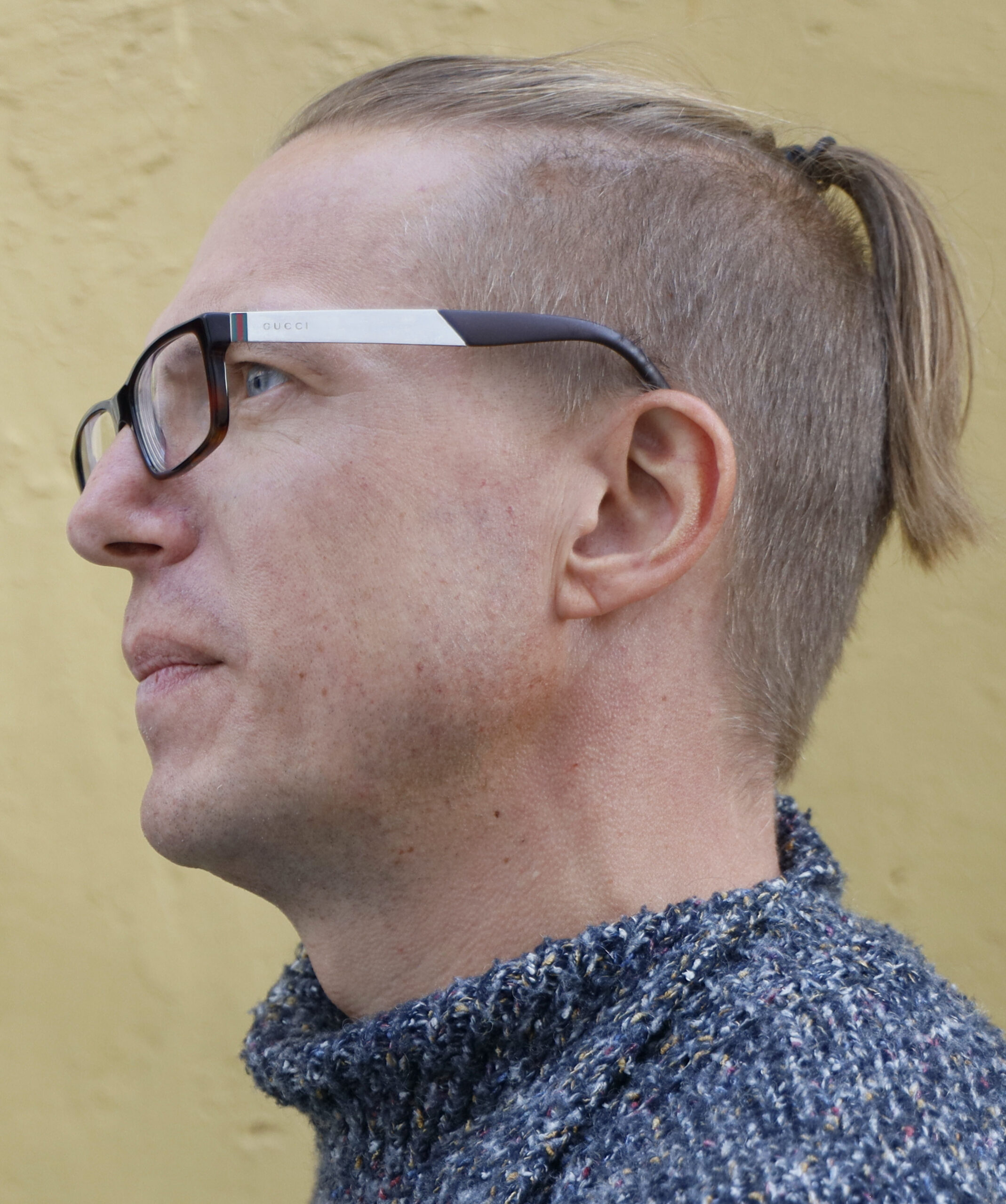
Tones of the Future in Estonia
Doris Kareva (Estonia)
Doris Kareva has published numerous volumes of poetry and a couple of prose works, translated poetry, essays, and plays, compiled several anthologies, and given lectures on culture, education, and ethics both at home and abroad. Currently, she works as the poetry editor for the literary magazine Looming.
Doris Kareva’s poetry has been translated into dozens of languages, and it has been set to music by several Estonian, English, Swedish, Dutch, Flemish, Italian, and other composers. Based on her work, theatrical and ballet productions have been created – such as “Mandragora” at the Tallinn City Theatre (2003), “Dream Café” at the Rakvere Theatre (2010), and “In the Presence of Gods. After the World” at the Estonian National Opera (2012).
In addition to literary awards, Doris Kareva has been awarded the Estonian State Cultural Prize in 1993 and 2005, as well as the Order of the White Star, IV Class, in 2001.
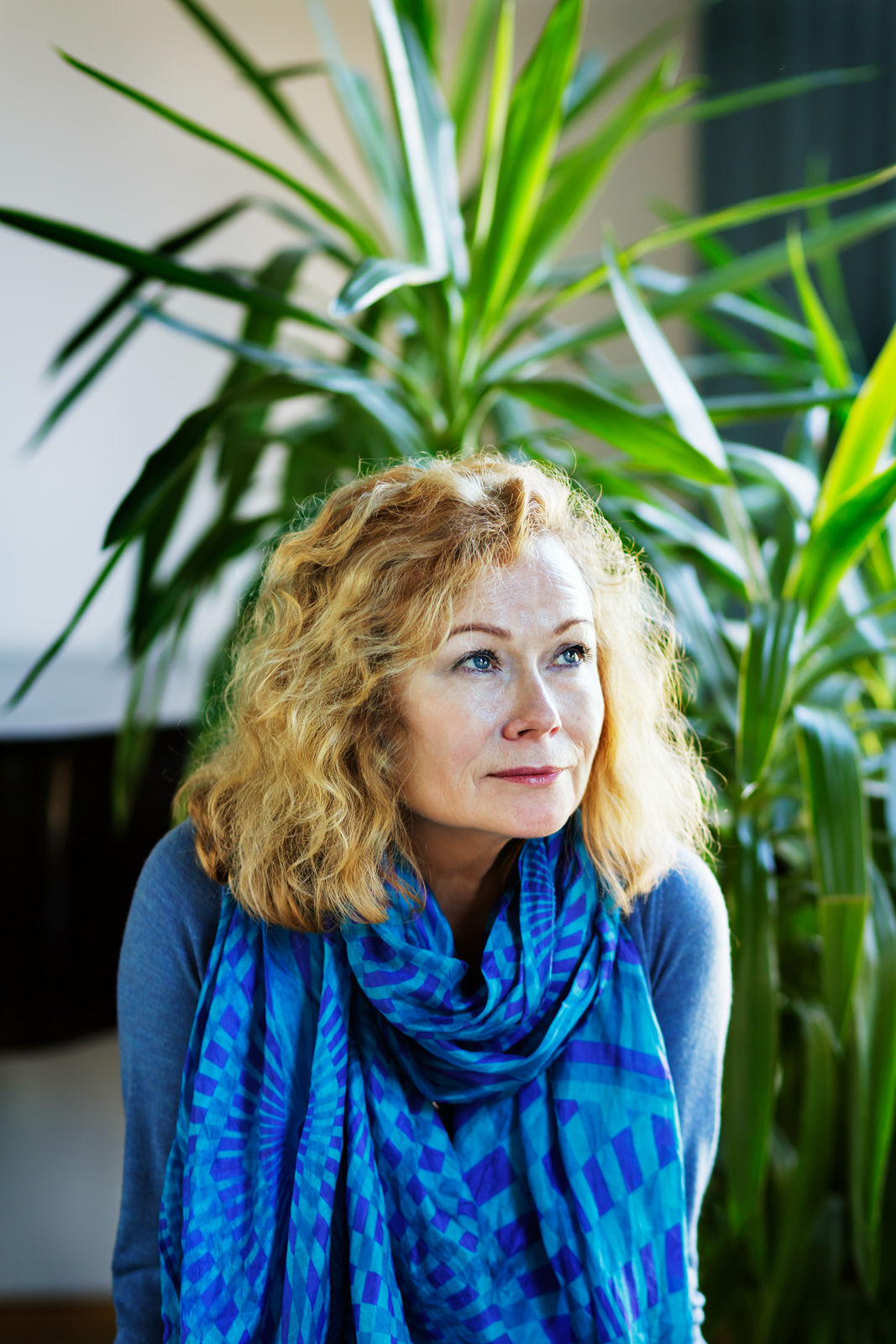
Tones of the Future in Estonia
Merca (Estonia)
Hey, I’m MERCA, Merle Jääger by my passport, what is it I can tell you about myself? Hi, first of all! Generally, my workplace is theatre, I work on stage, all kinds of roles there, you know.
But sometimes, when tension becomes too hard, I seize – no, not the axe, but a pen. Thus bye and bye my works have been born and also become published.
For certain reasons, the first of them in Canada were printed. It was Vello Salo, a priest, who published them. They were stories of the young in the Soviet times and some black-white-and-blue pieces.
The rest of my books have been published here, in Estonia, including “Mees” (Man) which is something like a short novel. & as I am half Seto by birth, I have also written pieces in the Seto language.
If now you’re intrigued by the tales I weave, dive into the web and look at what you’ll find!
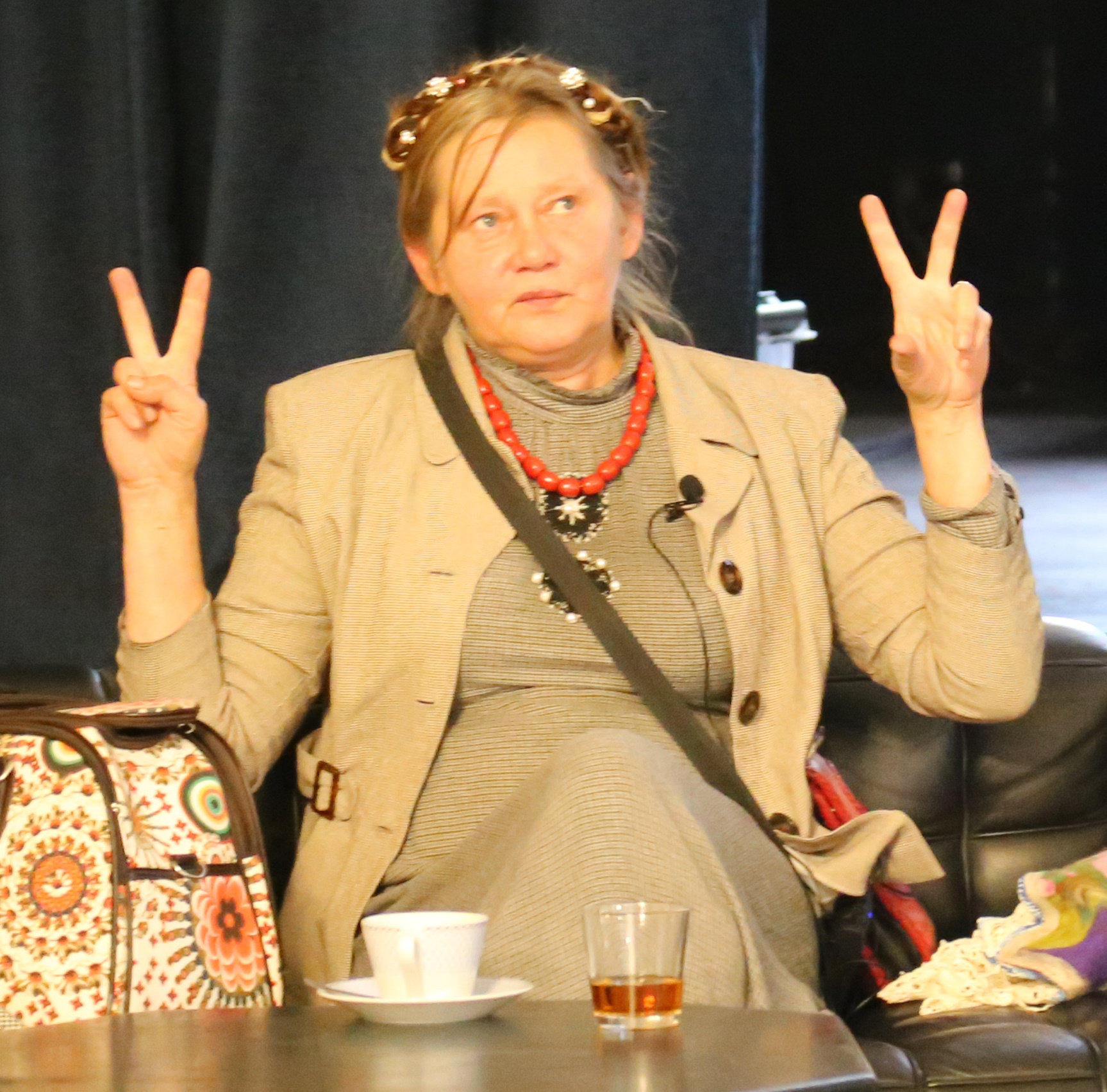
Tones of the Future in Estonia
Meelis Friedenthal (Estonia)
Meelis Friedenthal defended his doctoral thesis at the University of Tartu in 2008 on a 13th-century manuscript housed in the Tallinn City Archives, which dealt with the theological-allegorical understanding of sight and perception based on various medieval theories of vision. Concurrently with writing his doctoral thesis, he also published a novel titled “Kuldne aeg” (“The Golden Age”), belonging to the genre of speculative fiction, addressing issues of memory, history, and its reconstruction in a dystopian future world.
From 2008 to 2014, Friedenthal participated in the research project “The Spread and Reception of Ideas and Theories in the Baltic Countries during the Swedish and Russian Empires” and primarily researched the history of the University of Tartu in the 17th century. The novel “Mesilased” (“The Willow King”, English translation by Matthew Hyde, Pushkin Press 2017), belonging to the field of magical historicism, which was published during this period, stemmed from the research on the history of the University of Tartu. The work won the European Union Prize for Literature in 2012 and has been translated into 15 languages to date.
In 2014–2015, Friedenthal was a Lichtenberg-Kolleg Fellow at the University of Göttingen, researching religious tolerance in the early modern period, particularly in German universities. From 2015 to 2020, Friedenthal was a Pro Futura Scientia Fellow at the Swedish Collegium for Advanced Study in Uppsala, researching university disputations in the Baltic region during the early modern period. During this period, Friedenthal wrote his third novel, “Inglite keel” (“The Language of Angels”) (2016), which also belongs to the field of magical historicism and deals with the history of books and paper.
In 2021, Friedenthal published the collection of short stories “Kõik äratatakse ellu” (“All Are Awakened”), which gathers a selection of stories written between 2002 and 2021. Many of the stories published there have previously appeared in science fiction anthologies edited by Indrek Hargla.
Currently, Friedenthal works as an Associate Professor of Intellectual History at the University of Tartu Library and the University of Tartu, with his main research theme being the intellectual history of the Baltic Sea region in the early modern period, focusing on the history of theology and philosophy. At the end of 2023, his fourth novel, “Punkti ümber” (“Around the Point”), was published, set in the early 20th century and loosely based on the life of the Estonian-origin artist, filmmaker, and occultist Friedrich Jürgenson.
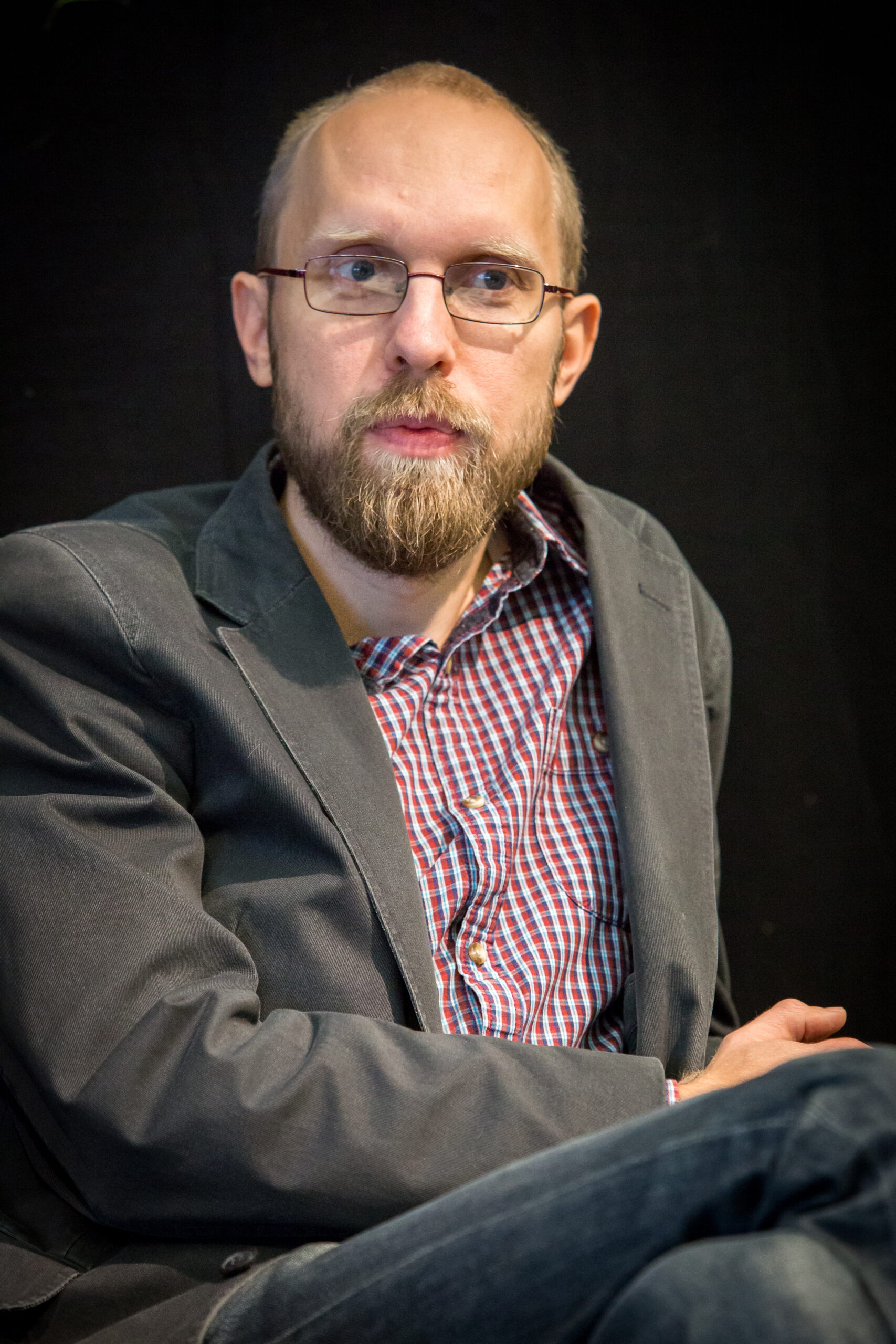
Creative Writing Workshop “Writing as a Time Machine” with the Writer of the Day Meelis Friedenthal
Tones of the Future in Estonia
Berit Petolai (Estonia)
Berit Petolai is a wandering poet and gatherer who lives with her family amid forests and fields in the small scattered village of Meoma, in the Peipsiääre municipality. Berit’s texts have been published in the journals Looming and Värske Rõhk, in the newspaper Müürileht, and in the anthology “Wild Word” (impressions from writers’ excursions to Palupõhja during the 2015 Prima Vista festival). Her poems and prose piece “The Return of the Witch Bear” have been translated into Finnish.
In Berit’s work resonates the voice of a simple and direct thinker, closely intertwined with nature, the beauty of human life’s breathing and pulsating alongside nature. Time and its passage, human anchors in the ever-flowing whirlwind of time, weave a resilient fabric that hints at timeless wisdom and an understanding of how everyday life can be something mundane yet sacred and nourishing. Nature, with all its tiniest participants, lends Berit’s texts a lively, effervescent, and gratitude-filled authentic flavour. Place and the sensitively captured spirit of the location veil the flowing poetry as ballads with a certain mystery, allowing the reader to feel that they have the opportunity to peek into a world where magic, fairy tales, and the beautiful and pure power of words still exist. Berit’s second poetry collection will be published this year, and a collection of prose stories is also in the works.
Berit studied Estonian and world literature at the University of Tartu. She works as a librarian at the Koosa village library, enticing children to read. Being kindred spirits with owls, Berit can usually be found wandering the roads of Meoma in the evenings with her three daughters, dog, and two cats, with a pen, notebook, binoculars, and mushroom knife in her pocket.
Contemplating various future scenarios, Berit provides a succinct hint in response: Nature provides hope. When the time comes, one must pack up their family and three bags and move to live under a fir tree, accompanied by a butterfly, snail, and beetle, just as Juhan Liiv once calmly said in his poem “Kuuseke” (“The Little Fir Tree.”)
In the spring of 2017, Berit was awarded the Prima Vista debut prize for her poems „Kolletamispäev” (“Browning Day”), „Hundid ja vanamehed” (“Wolves and Old Men”), and “Tütrele” (“For My Daughter”) published in the 2016 issue of Looming. In 2019, the author’s debut collection, “The Humming Winds of Meoma,” was selected as one of the nominees for the Betti Alver debut prize. In 2021, Berit was awarded the Juhan Liiv Poetry Prize for the poem “Tõnkadi-lõnk” (“Clankity-clank”), published in the February 2020 issue of Looming.
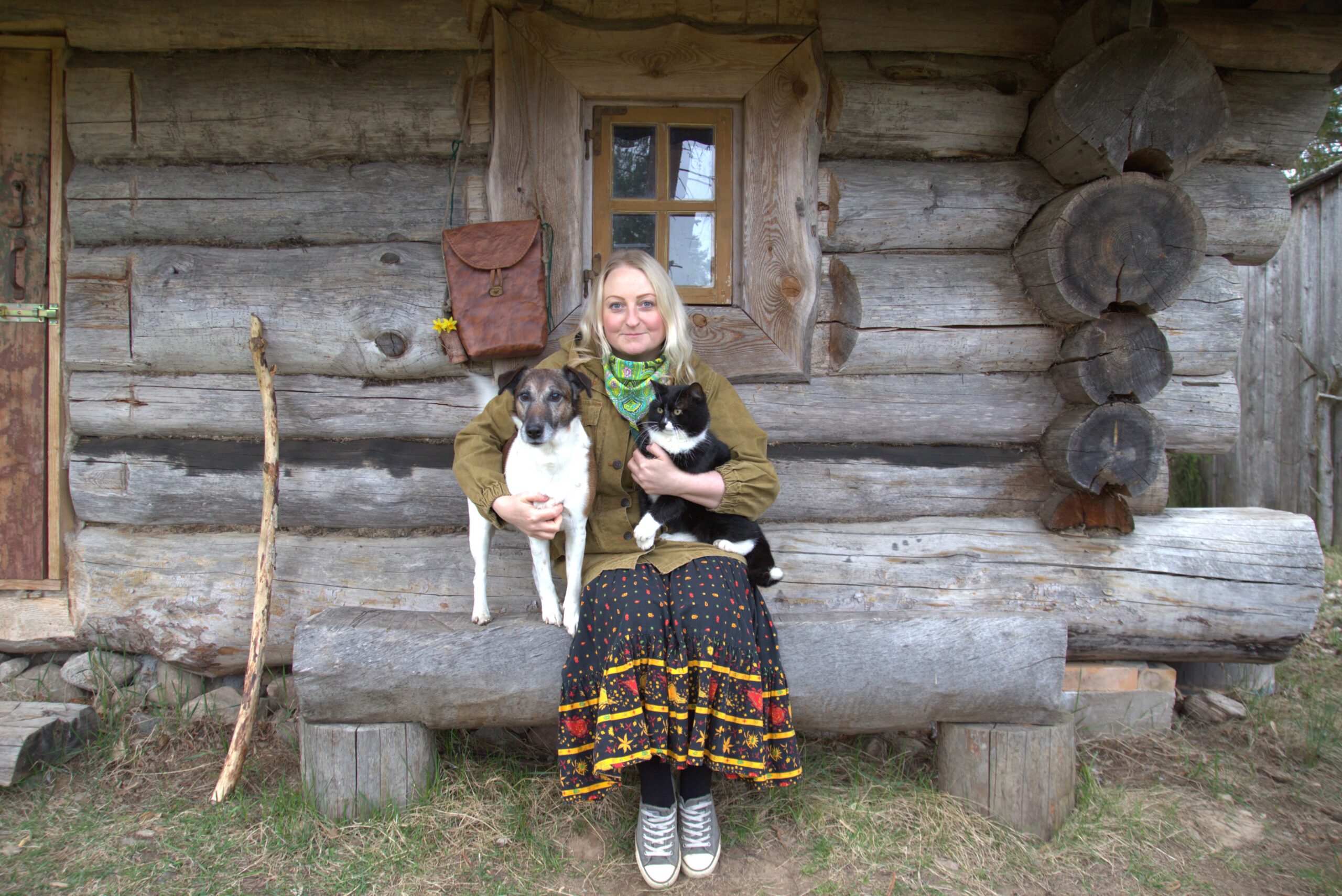
Tones of the Future in Estonia
Maarja Pärtna (Estonia)
Maarja Pärtna is the 2024 Tartu City Writer, translator, and editor, who engages in her work with socio-ecological themes.
She has published five poetry collections. Among them, the most recent are the spatially poetic “Vivarium” (2019), which combines historical trauma with climate anxiety, and the prose poetry collection “Living City” (2022), which focuses on urban nature, the possibility of better coexistence with non-human animals, as well as the lyrical self’s childhood memories. These lead back to the traces of ecocide from the Estonian oil shale industry, which is one of the local manifestations of the global ecological crisis.
Pärtna studied English language and literature, as well as world literature, at the University of Tartu. As a translator, she has translated essays by Kathleen Jamie, Margaret Atwood, Edward Said, and Robert Macfarlane into Estonian. She has worked as a literary editor for the publications Müürileht and Värske Rõhk and edited several poetry collections. Pärtna has been awarded the Gustav Suits Poetry Prize, the Juhan Liiv Poetry Prize, and the title of Young Cultural Ambassador of Tartu. Her poems have been translated into more than ten languages.
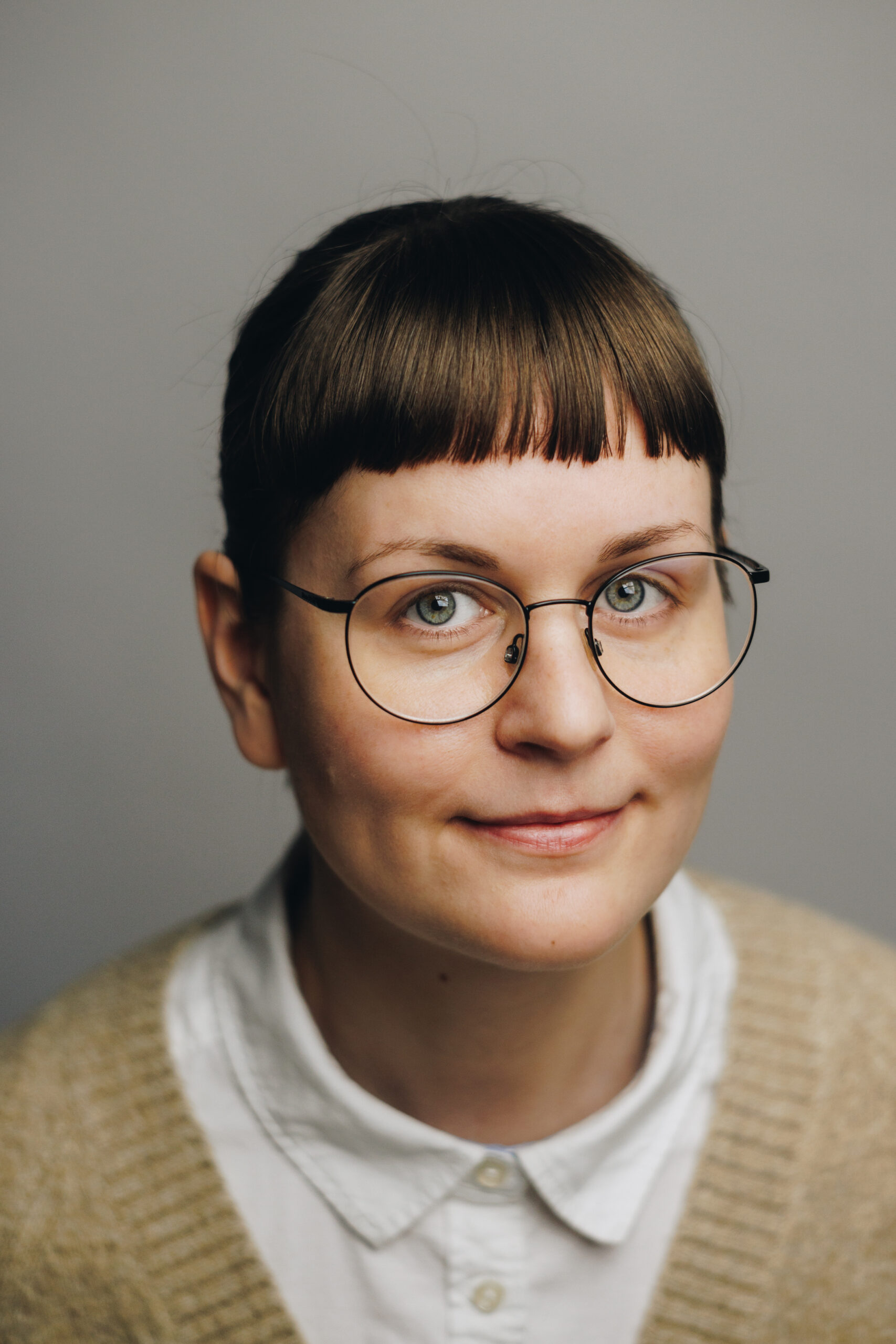
Discussion “Literature in a More-Than-Human World” led by the Writer of the Day Maarja Pärtna
Tones of the Future in Estonia
Henri Hütt (Estonia)
Henri Hütt is a (performing) artist, whose spectrum of artwork contains predominantly technological performative acts, sound performances, staged exhibitions, curating, writing, installative performances and other unattainable formats. Henri’s artistic examples include performances in this decade, which incorporate all theatre space as well as the microtonal flickering of an empty space. “The more you do, the less you will be remembered“ is definitely one of his ongoing and paradoxical drives in creation.
